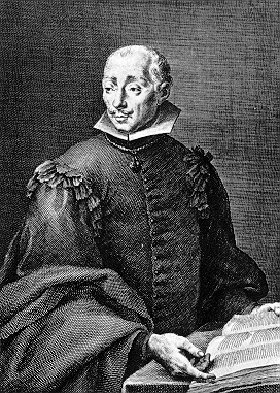Francisco Vallés
Francisco Vallés (1524 – 1592), also known as Francisco Vallés de Covarrubias, was a distinguished Spanish physician and medical writer of the Renaissance period. He is best known for his comprehensive work Examen de Ingenios para las Ciencias (Examination of Wits for the Sciences), which is a significant contribution to the field of medicine and psychology. Vallés was often referred to as the Divino Vallés (Divine Vallés) by his contemporaries due to his profound knowledge and contributions to medical science.
Biography[edit | edit source]
Francisco Vallés was born in Covarrubias, a town in the province of Burgos, Spain. He pursued his education in the arts and philosophy before turning to the study of medicine at the University of Alcalá, where he later became a professor. Vallés served as a personal physician to King Philip II of Spain, a position that underscored his prominence in the field of medicine during the Renaissance.
Contributions to Medicine[edit | edit source]
Vallés's most notable work, Examen de Ingenios para las Ciencias, was not solely focused on medicine but also explored the natural aptitudes of individuals for various sciences. This work is considered an early attempt to understand human psychology and cognitive abilities. In addition to this, Vallés wrote extensively on clinical medicine, pharmacology, and the philosophy of science. His approach to medicine was deeply influenced by the works of Galen, and he was known for advocating for the integration of classical theories with empirical observations.
Vallés also contributed to the understanding of various diseases and their treatments. His observations and treatments were compiled in a collection of clinical cases, which served as an important reference for physicians in the late Renaissance period.
Legacy[edit | edit source]
Francisco Vallés's contributions to medicine and science were highly regarded by his contemporaries and have continued to be recognized by historians of medicine. His works reflect the transition from medieval to modern science and the increasing emphasis on observation and empirical evidence in the medical field.
Selected Works[edit | edit source]
- Examen de Ingenios para las Ciencias (Examination of Wits for the Sciences)
- A collection of clinical cases and observations
See Also[edit | edit source]
Search WikiMD
Ad.Tired of being Overweight? Try W8MD's NYC physician weight loss.
Semaglutide (Ozempic / Wegovy and Tirzepatide (Mounjaro / Zepbound) available. Call 718 946 5500.
Advertise on WikiMD
|
WikiMD's Wellness Encyclopedia |
| Let Food Be Thy Medicine Medicine Thy Food - Hippocrates |
Translate this page: - East Asian
中文,
日本,
한국어,
South Asian
हिन्दी,
தமிழ்,
తెలుగు,
Urdu,
ಕನ್ನಡ,
Southeast Asian
Indonesian,
Vietnamese,
Thai,
မြန်မာဘာသာ,
বাংলা
European
español,
Deutsch,
français,
Greek,
português do Brasil,
polski,
română,
русский,
Nederlands,
norsk,
svenska,
suomi,
Italian
Middle Eastern & African
عربى,
Turkish,
Persian,
Hebrew,
Afrikaans,
isiZulu,
Kiswahili,
Other
Bulgarian,
Hungarian,
Czech,
Swedish,
മലയാളം,
मराठी,
ਪੰਜਾਬੀ,
ગુજરાતી,
Portuguese,
Ukrainian
Medical Disclaimer: WikiMD is not a substitute for professional medical advice. The information on WikiMD is provided as an information resource only, may be incorrect, outdated or misleading, and is not to be used or relied on for any diagnostic or treatment purposes. Please consult your health care provider before making any healthcare decisions or for guidance about a specific medical condition. WikiMD expressly disclaims responsibility, and shall have no liability, for any damages, loss, injury, or liability whatsoever suffered as a result of your reliance on the information contained in this site. By visiting this site you agree to the foregoing terms and conditions, which may from time to time be changed or supplemented by WikiMD. If you do not agree to the foregoing terms and conditions, you should not enter or use this site. See full disclaimer.
Credits:Most images are courtesy of Wikimedia commons, and templates, categories Wikipedia, licensed under CC BY SA or similar.
Contributors: Prab R. Tumpati, MD




